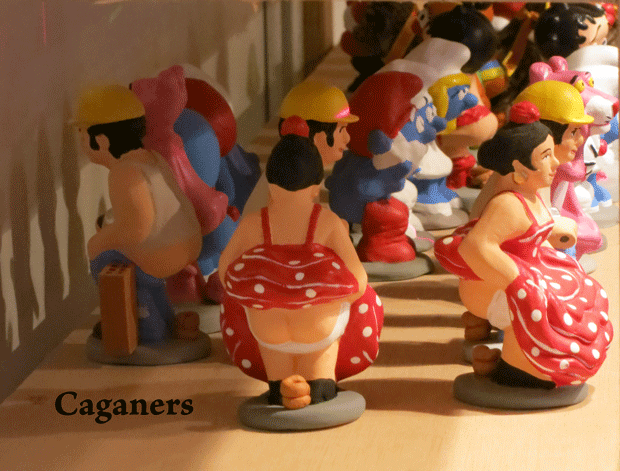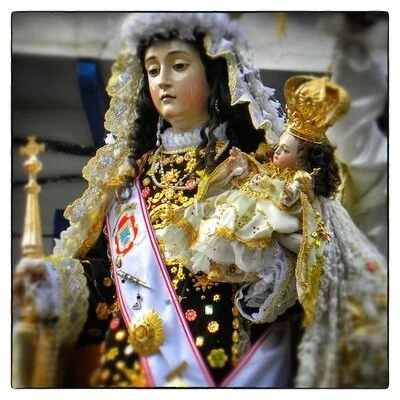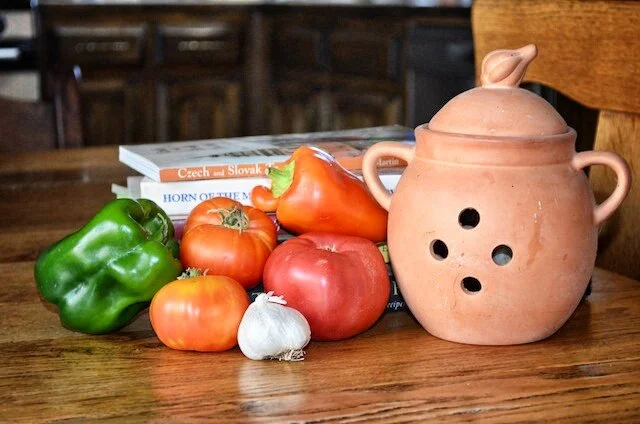by Elyn Aviva
Bon Nadal and Feliç Any Nou! That’s Catalan for Merry Christmas and Happy New Year.
It’s the holiday season in my home town, Girona, Catalonia, and things aren’t quite what you might expect. Yes, there are the familiar ho-ho-ho Santa Claus figures dangling from buildings, and three-foot-high Christmas trees with matching pink and purple ribbon decorations are lined up outside stores on the main shopping streets.

There are brilliant-colored lights strung across the avenues, and a glittering conical abstraction of a Christmas tree pulses on and off in the Plaza de Catalunya. Christmas carols (sometimes in English) echo through the halls, the beauty salons, and the restaurants, and carolers emote as they stroll down the pedestrian Rambla, songbooks in hand. Flame-red poinsettias are for sale in the market, and school-club fundraisers hawk chocolate bars and handmade knickknacks. And there’s the cheery Firanadal (Christmas Fair) offering artisanal goods, felt slippers, jewelry, plastic toys, and boxwood spoons.
Yes, all of this is vaguely familiar, even if gigantes (giant dancing king and queen figures), a marathon Nativity play (Els Pastorets), xuixus (pronounced “choochoos”: sugar dusted, cream-filled pastry rolls), and turrón (a kind of nougat) aren’t usual Christmas fare.

But you really know you’re in a foreign land when you seen the rows of squatting miniature figures—including SpongeBob SquarePants, flamenco dancers, Obama, Barça soccer star Messi, Queen Elizabeth II, and Death—their pants pulled down, a brown plop of poop deposited behind them, for sale for inclusion in Nativity scenes. Correction: the plop of poop behind Death is white, not brown.



















